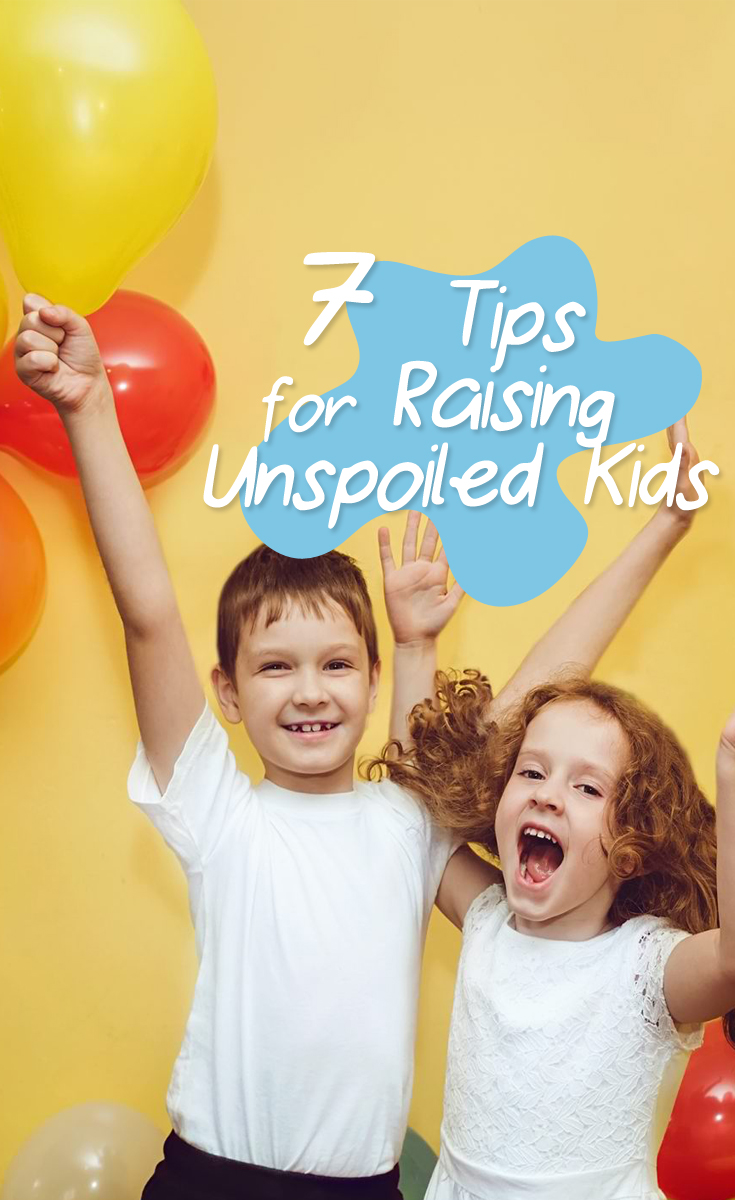 As parents, we want to raise our children to be the best people they can possibly be. We hope our children turn out to be functional adults who are kind to others. At the same time, we want to give them the best childhood they can have. The question many parents run into, myself included, is how to accomplish our end goal while giving our children everything we can. How do we raise unspoiled kids?
As parents, we want to raise our children to be the best people they can possibly be. We hope our children turn out to be functional adults who are kind to others. At the same time, we want to give them the best childhood they can have. The question many parents run into, myself included, is how to accomplish our end goal while giving our children everything we can. How do we raise unspoiled kids?
There is no one-size fits all answer, but these tips may help.
-
Just Say No

Image source: www.ravishly.com Although our desire to provide our children with material things that are so readily available today (and, let's face it, very good at keeping children busy!) is deeply ingrained, it's important that our kids hear “No” from us now and then. Whether it's the latest gadget or extra TV time, that “no” may help them learn to handle disappointment, tolerate frustrations, and delay gratification by having to wait or earn the thing you said no to.
-
Natural Consequences

Image source: static.vecer.com We can't bubble wrap our kids, as much as we may sometimes want to. Kids do need to learn the hard way, on occasion. Rescuing your child by handling a situation for them or hiding a disappointing result from them can do more harm than good. Did little Timmy leave his homework at home for the umpteenth time? Let him sort it out with his teacher rather than bring it to him again.
-
The Value of a Dollar

Image source: 5percado.hu Nothing can be harder than trying to explain to a child who desperately wants an item that you simply cannot afford to buy it. This, more often than not, ends up leading to The Talk – you know the one: the Almighty Dollar Explanation. However, understanding money can lead to fewer meltdowns in childhood and more fiscal responsibility as a teenager and adult.
-
Teach Manners

Image source: i.huffpost.com Respect, being polite, using your manners: whatever you call it, your children need to learn it. Those please and thank yous may be exhausting now, but a well-mannered child will usually grow up to be a successful adult.
-
Help Them Learn Empathy

Image source: fthmb.tqn.com Being able to put others first, to consider the needs of those around them, and to want to do something to help others is something we call empathy. Empathy is something children are hardwired to feel, but may not exhibit if they are never taught to. Modeling empathy to your child, talking about other people's feelings and why they are important too, and other easy to begin exercises in empathy are a great way to teach your child this important value.
-
Practice Giving

Image source: fthmb.tqn.com The act of giving a gift can often be better than the act of receiving one. Teaching our children this from a young age can set them up to be caring, giving children, and later, adults. Model generosity yourself. Write a list of things they should look at giving to others and how they can accomplish that. You could even try volunteering or having your child sort through their possessions to sell at a yard sale to start with.
-
Practice What You Preach

Image source: behavioraldimensions.com Perhaps the most important thing for us all to remember as parents: our children will practice what they see. It's fine for us to tell them to be kind, be empathetic, be giving. But if we do not model these traits ourselves, our children will not see the importance of doing so in their own lives. Make sure your children know you volunteer. Have them help you sort out your own possessions to donate. Be empathetic to them when they are having a bad day. Whatever you want them to learn, make sure they see these qualities in you.
Parenting is a roller coaster of trial and error, learning as you go, and hoping you got it right. We all want the same thing: for our children to turn out the best people they can be, and that starts by raising unspoiled kids. I hope these tips help you reach your goals for yourself, your family, and most especially, your children.


